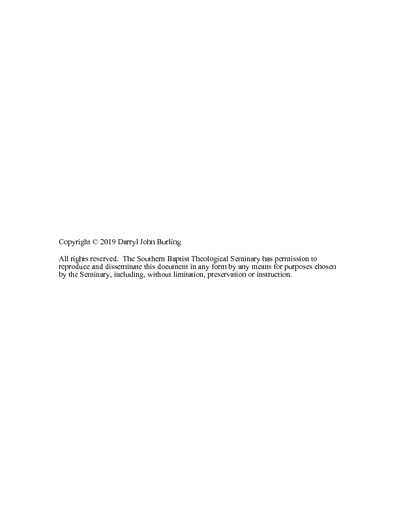| dc.description.abstract | This dissertation argues that the union between Christ and the church is given as a model of the participation between a husband and wife within a marriage because the nature of the marriage relationship and the relationship between Christ and the church is essentially the same, and that this participatory model has implications for how we understand marriage and think about marriage counseling.
Chapter 1 introduces the thesis of this dissertation and traces some historical developments related to its theme. Chapter 2 argues that marriage should not be considered a covenant, but a union inaugurated by a covenant. This chapter shows that definitions of covenants are increasingly loose and do not take into account the purpose of covenants and the distinctiveness of the pre-fall situation in Genesis 2.
In chapter 3, this dissertation draws on biblical theology, the studies of union with Christ that have taken place over the last two decades, and recent works providing a biblical model of human experience in order to build a pastoral theology of union with Christ. Such a theology explains how union with Christ is experienced and provides a model of participation within the union that can be applied to marriage.
Having developed a model of union with Christ that can be applied to marriage, it is necessary to examine key passages that are concerned with both union with Christ and marriage in order to determine whether the participatory model is supported by these passages. Chapter 4 provides an exegetical summary of each of the four passages Constantine Campbell identified which relate union with Christ and marriage.
Chapter 5 seeks to synthesize the findings of the previous three chapters. This chapter describes marriage, its purpose and how the participatory model works within the marriage union. This final chapter, will also briefly consider how marriage as a union with a resulting participatory model informs our understanding of some key issues such as sexual union, divorce and provide some implications for counseling. | en_US |

